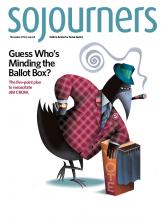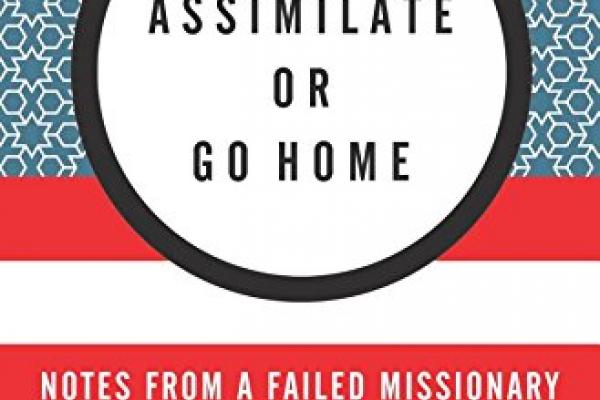A FRIEND JUST told me something wise: Be skeptical but never cynical. In Assimilate or Go Home, a series of essays about her ministry and faith experience, D.L. Mayfield tells an even rarer story—of her movement from idealism through cynicism into a deeper faith. She manages to avoid sinking into an easy “wisdom” that simply excuses apathy.
Mayfield’s journey into an unperfected ministry starts when she is an idealistic high schooler, wanting to serve immigrants and refugees in her community. She discovers that this isn’t easy, as she works with and sometimes lives among Somali Bantu refugees, first in Bible college and then through her 20s. Even her best efforts aren’t what the community wants or needs. Instead, she finds her intentions thwarted and her ideals coming up short as she teaches English, mentors teens, and helps friends struggle through obstinate bureaucracies. All of this activity stalls in the face of a dramatically different culture and people who don’t want to be “saved.” This sense of frustration is mirrored in the structure of the book: We are never given much sense of the timeline of Mayfield’s life, just that the same challenges persist.
Mayfield describes baking a cake for the wedding of a girl she had mentored from a Somali Bantu family. This girl was only a junior in high school when she married and moved across the country with her new husband. Mayfield finds herself wondering if all the “countless conversations about colleges and careers ... harping on equitable marriages, on waiting to have children, on finishing high school” might have made things worse.
Read the Full Article

